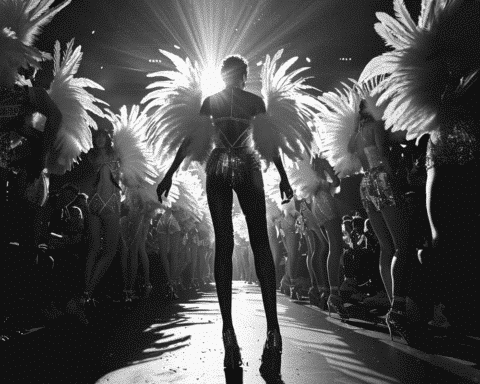Victoria’s Secret, the iconic lingerie brand, recently faced a dilemma as its commitment to wokeness failed to resonate with its customer base, resulting in a significant drop in sales. BusinessOfFashion.com reported that the brand’s move away from its “hyper-sexualized” image and its attempt to embrace a more inclusive and feminist approach did not translate into business success. This has led Victoria’s Secret to reevaluate its marketing strategy and pivot back to its roots in sexiness while attempting to maintain some level of inclusivity.
As part of its inclusivity efforts, Victoria’s Secret made LGBTQ pro women’s soccer player and outspoken leftist Megan Rapinoe, as well as a transgender woman, its brand spokesmodels. The brand also ditched its famous “Angels” supermodels. Cathaleen Chen reported that these changes gained “favourable reviews from online critics [but] never translated into sales.” Victoria’s Secret’s projected revenue for 2023 is $6.2 billion, 5% lower than last year and significantly lower than its $7.5 billion revenue in 2020.
The drop in sales also followed the company’s decision to make its board of directors primarily female. Megan Rapinoe previously criticized the brand for sending out a “really harmful” message that was “patriarchal and sexist.” To stop the financial drain caused by its body-positive marketing, Victoria’s Secret is returning its runway show format, blending its iconic sexiness with some of its more inclusive initiatives.
Victoria’s Secret: The Tour ’23 was described by Chen as a display that “fell somewhere between the personification of male lust of the brand’s aughts-era heyday and the inclusive utopia promoted by its many disruptors.” Victoria’s Secret and Pink brand president Greg Unis explained that the company’s new direction is based on “Sexiness can be inclusive.” He stated, “Sexiness can celebrate the diverse experiences of our customers, and that’s what we’re focused on.” Chief executive Martin Waters admitted that the inclusivity initiatives were not profitable for the company, stating, “Despite everyone’s best endeavours, it’s not been enough to carry the day.”
Victoria’s Secret’s recent shift back to its roots in sexiness represents a strategic decision to align its marketing approach with the desires of its customer base. The company’s new goal is to “Improve profitability and cross back over $7 billion in annual sales.” To achieve this, the brand plans to roll out activewear and swimwear, update its existing stores, and open up 400 new stores outside the United States. Only time will tell if this new direction will allow Victoria’s Secret to regain its footing and achieve the success it once enjoyed.




